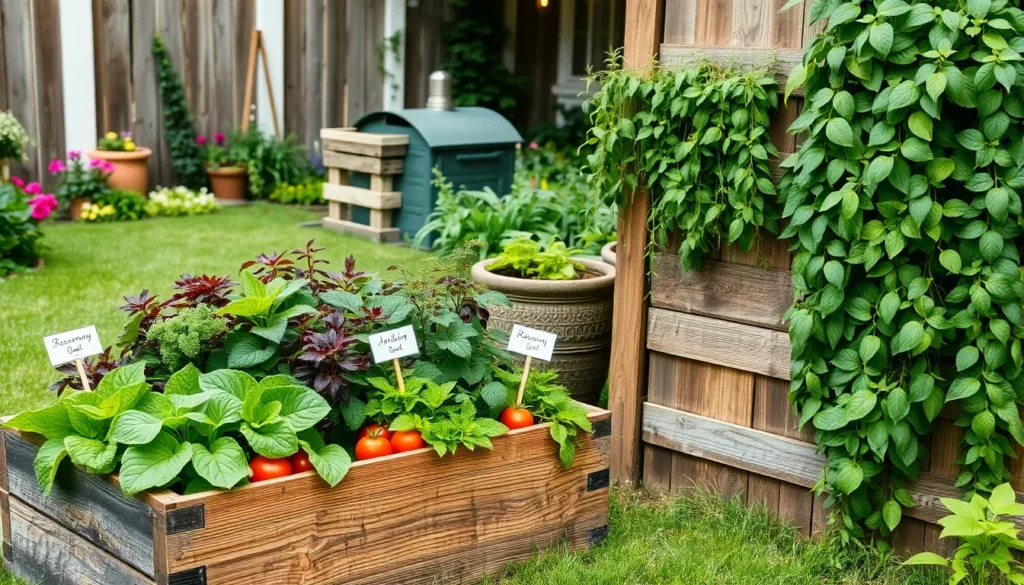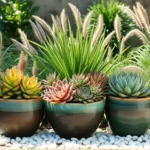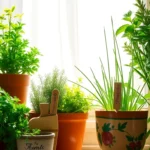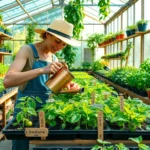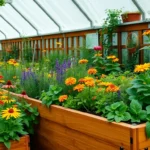Embarking on the journey of organic gardening at home is like inviting nature’s gentle touch right to your doorstep. Whether you’re a novice wondering where to start or a seasoned green thumb seeking to deepen your practice, organic gardening offers a fulfilling way to cultivate a vibrant, healthy environment. It’s not just about growing plants; it’s about nurturing a harmonious ecosystem that flourishes with life and vitality.
For those new to this path, organic gardening can transform your perception of what a garden can be. Imagine a space where every leaf and bloom is the result of natural processes, free from synthetic chemicals and pesticides. Experienced gardeners will find that adopting organic methods not only enhances the health of your plants but also enriches the soil, promoting biodiversity and long-term sustainability. The interplay of insects, soil, and plants creates a dynamic environment that’s both productive and resilient.
In this article, you’ll discover practical strategies for starting and maintaining an organic garden, regardless of your experience level. We’ll explore soil preparation, natural pest control, and companion planting techniques that empower you to create a thriving garden. By the end, you’ll have a toolkit of actionable tips that make organic gardening not just a possibility but a rewarding and accessible reality. Together, let’s cultivate gardens that are as nourishing for the earth as they are for our souls.
Benefits of Organic Gardening
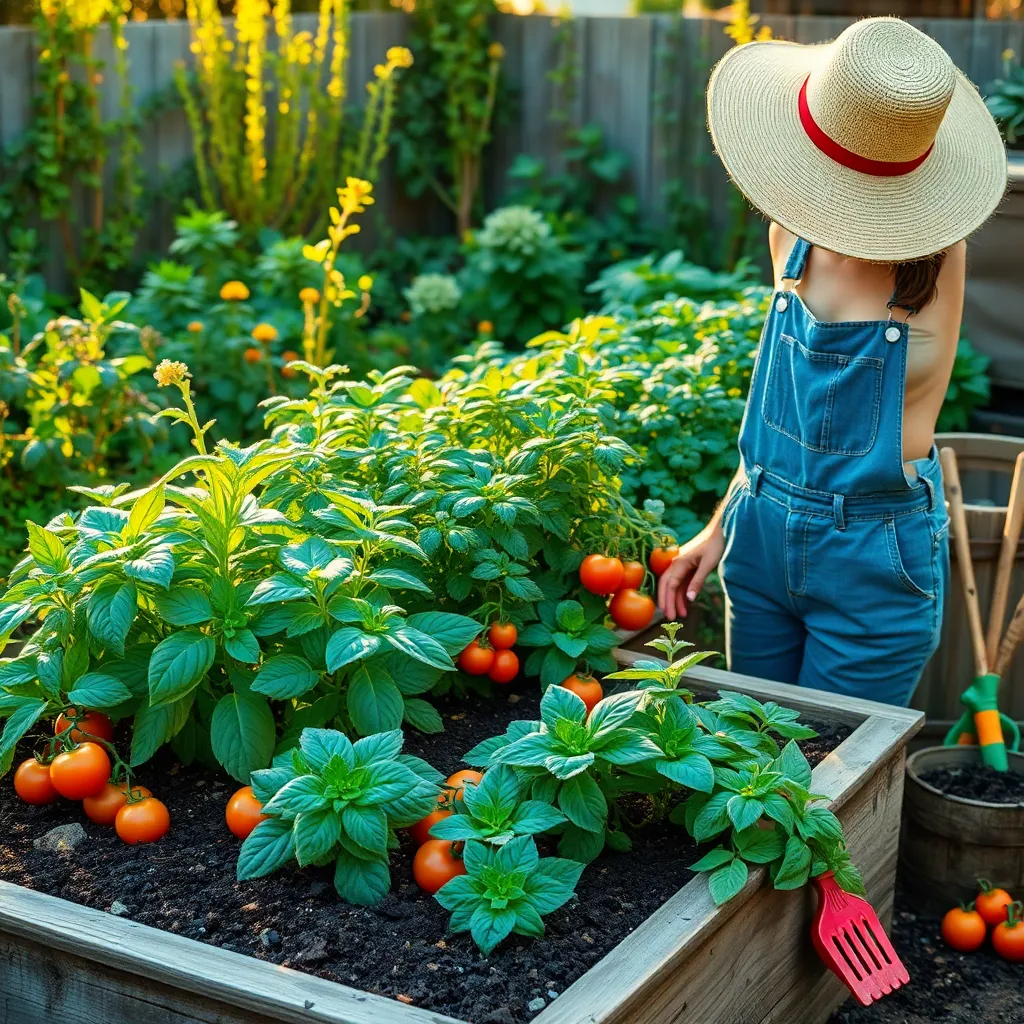
Growing plants organically offers numerous environmental benefits, including enhancing soil health and biodiversity. By avoiding synthetic chemicals, gardeners foster a thriving ecosystem where beneficial insects and soil microbes can flourish.
Organic gardening also leads to healthier produce that’s free from harmful pesticides, providing you and your family with safer fruits and vegetables. To maximize this benefit, consider using organic compost to enrich your soil, which will help your plants absorb nutrients more effectively.
For beginners, starting with organic gardening can be as simple as choosing the right soil and plant combinations. Use a mix of compost and well-draining soil to create an optimal environment for plant growth, ensuring that roots can spread and access the nutrients they need.
Experienced gardeners might experiment with crop rotation and companion planting to naturally deter pests and disease. Rotating crops helps prevent soil depletion, while certain plant pairings can repel harmful insects without the need for chemical interventions.
Watering techniques are equally crucial in organic gardens. Implement a deep watering method, allowing the water to reach the roots thoroughly, and consider using rainwater collection systems to maintain sustainability.
To further enhance your organic gardening practices, maintain a regular schedule of soil testing. This allows you to tailor your fertilization and watering strategies, ensuring your plants receive exactly what they need for optimal health and yield.
Choosing Organic Seeds and Plants
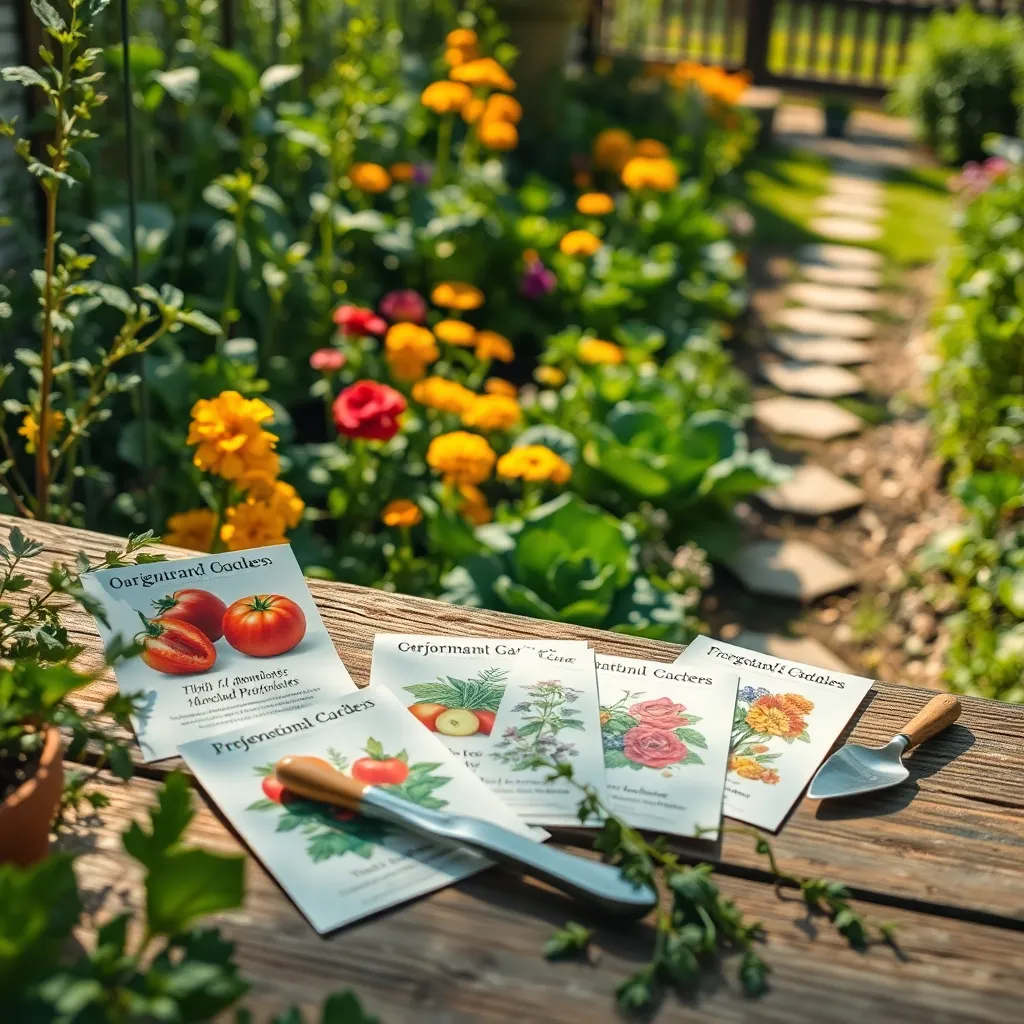
When starting your organic garden, selecting the right seeds and plants is crucial for success. Look for seeds labeled as organic and untreated, which ensures they are free from synthetic chemicals and genetically modified organisms.
Consider choosing heirloom varieties, as they are often more resilient and flavorful. These seeds offer a connection to traditional gardening and can be saved for future planting, promoting sustainability.
For beginners, starting with plants known for their hardiness and ease of care is a wise choice. Options like tomatoes, basil, and lettuce are excellent for those new to gardening due to their forgiving nature and quick growth.
Advanced gardeners might experiment with more challenging plants such as heirloom tomatoes or rare herbs. These require specific care, including consistent watering and well-drained soil, but reward you with unique flavors and colors.
- Ensure your soil is rich in organic matter to support plant health.
- Practice crop rotation to maintain soil fertility and reduce pests.
- Use organic mulch to retain moisture and suppress weeds, enhancing plant growth.
By choosing organic seeds and plants, you contribute to biodiversity and a healthier ecosystem. Whether you are new to gardening or an experienced green thumb, these choices make a significant difference in the quality and sustainability of your garden.
Creating Nutrient-Rich Compost
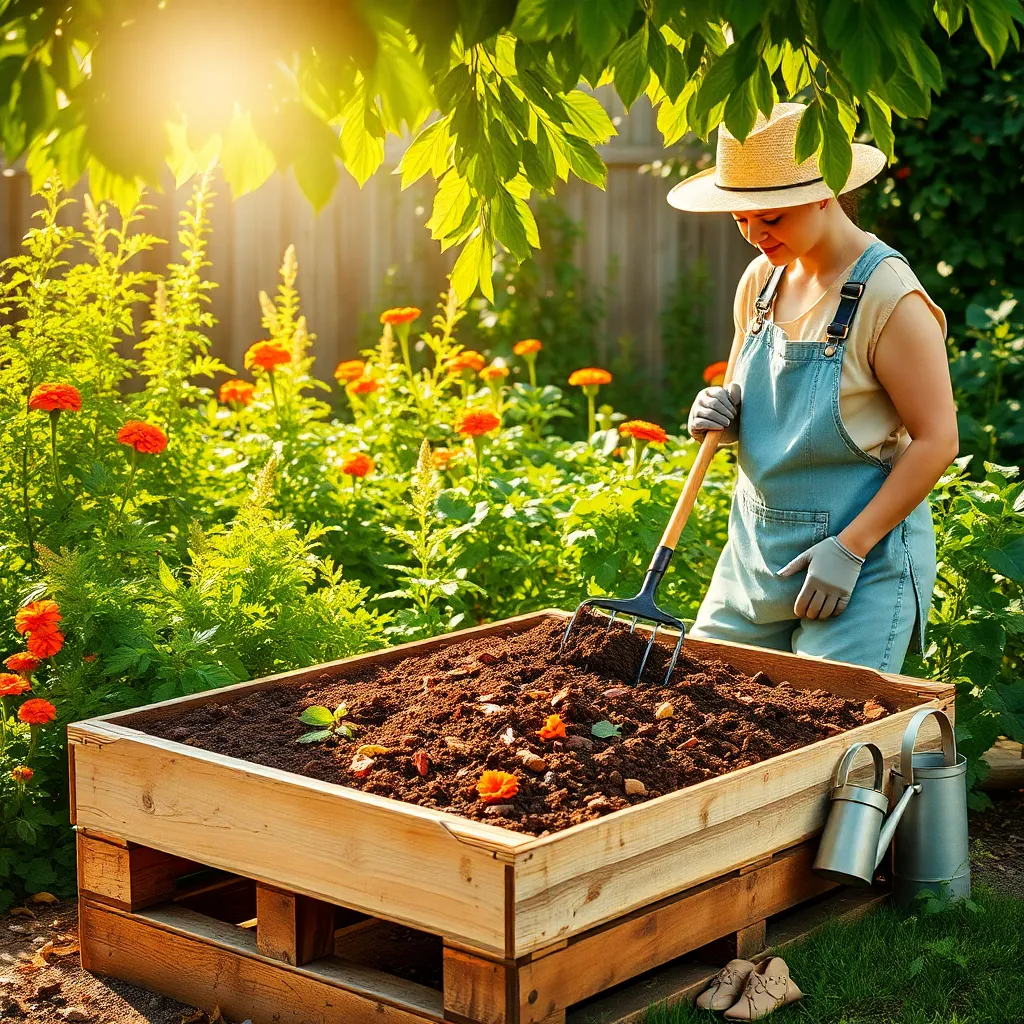
Creating nutrient-rich compost is a rewarding process that transforms kitchen scraps and yard waste into a valuable resource for your garden. To start, gather organic materials such as fruit peels, vegetable scraps, coffee grounds, and grass clippings.
Avoid adding meat, dairy, and oils to your compost pile, as they can attract pests and cause odors. Instead, focus on a balanced mix of green materials (for nitrogen) and brown materials like dried leaves and twigs (for carbon).
Layering is key to successful composting; alternate layers of green and brown materials to maintain balance. Turn your compost pile every few weeks to aerate it, which speeds up decomposition and helps control odor.
Moisture is essential for decomposition, so keep your compost pile damp but not soggy. An easy way to test moisture level is by squeezing a handful of compost; it should feel like a wrung-out sponge.
Natural Pest Control Methods
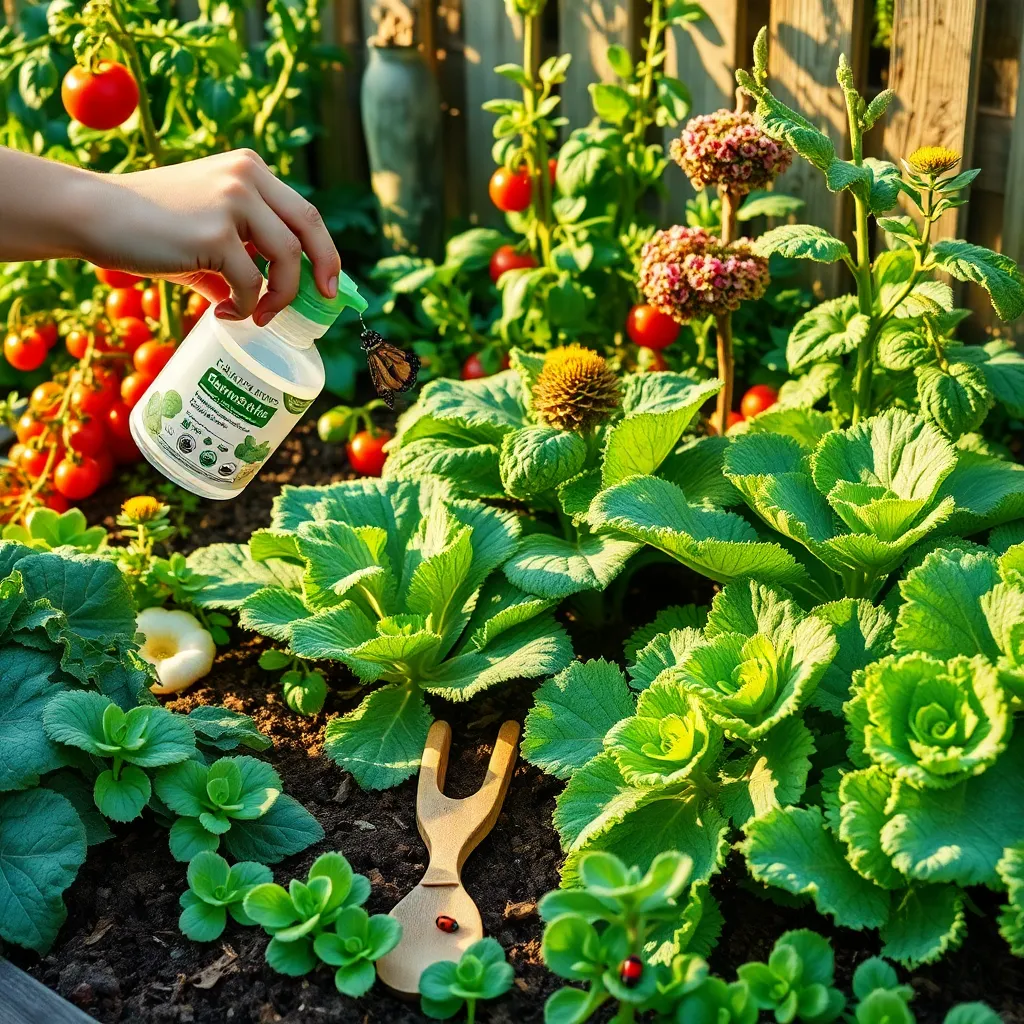
Natural pest control methods are a cornerstone of maintaining a healthy, organic garden. Implementing these techniques not only protects your plants but also promotes an eco-friendly environment.
One effective method is to introduce beneficial insects like ladybugs and lacewings, which are natural predators of aphids and other pests. You can purchase these beneficial insects online or at local garden centers, releasing them during early morning or late afternoon for best results.
Companion planting is another excellent strategy to deter pests naturally. For example, planting marigolds alongside tomatoes can help repel nematodes, while basil near peppers can ward off aphids and mites.
Using organic sprays made from household ingredients can also keep unwanted pests at bay. A mixture of water, garlic, and a few drops of neem oil can effectively deter many common garden insects when applied to plant leaves weekly.
Maintaining a healthy garden ecosystem is crucial for natural pest control. Encourage birds and other wildlife by providing birdhouses and water features, as they can help keep pest populations in check.
Advanced gardeners may consider creating a diverse habitat by incorporating native plants and wildflowers into their garden. This approach not only attracts beneficial insects but also ensures a balanced ecosystem that naturally controls pests.
Harvesting and Storing Your Produce
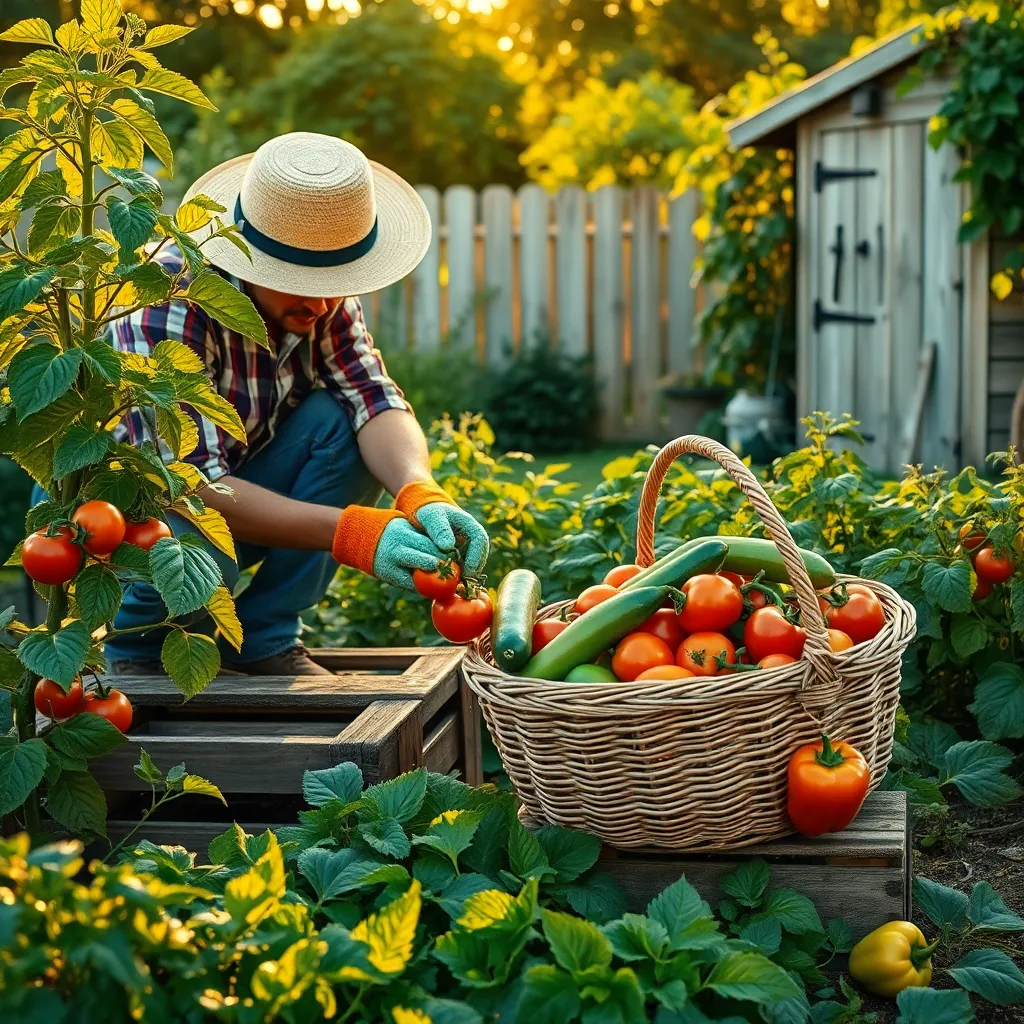
When it comes to harvesting, timing is everything to ensure the best flavor and nutritional value. Check your plants daily as they near maturity, and aim to pick produce in the early morning when moisture content is highest.
For leafy greens like spinach and lettuce, use sharp scissors to cut leaves at the base, leaving the root intact for regrowth. Root vegetables such as carrots and beets should be gently loosened with a fork before pulling to prevent damage.
Proper storage is crucial for prolonging the life of your harvest. Store root vegetables in a cool, dark place with high humidity, such as a cellar, to maintain freshness.
For tomatoes and peppers, keep them at room temperature on the counter, away from direct sunlight, to ripen fully before eating. Avoid refrigerating these fruits as it can alter their texture and flavor.
Consider canning or freezing excess produce to enjoy your garden’s bounty throughout the year. Blanching vegetables before freezing helps preserve color and nutrients, ensuring they taste fresh when defrosted.
Advanced gardeners might explore fermentation or dehydration as methods to store produce creatively. These techniques not only extend shelf life but also enhance flavors and offer health benefits.
Conclusion: Growing Success with These Plants
In exploring ‘Organic Gardening at Home,’ we unearthed five essential relationship concepts: the importance of nurturing growth through patience and care, the necessity of a strong foundation to weather storms, the value of consistent communication akin to tending to our plants, the beauty of diversity and collaboration in fostering a thriving environment, and the power of resilience in overcoming challenges. These principles not only apply to gardening but resonate deeply in cultivating healthy, fulfilling relationships.
As an actionable next step, reflect on one area of your relationship that could benefit from a little more care, and take a small, meaningful action today—whether it’s a heartfelt conversation, a shared activity, or simply expressing gratitude.
Remember, just as a garden flourishes with consistent attention, so too will your relationships. Bookmark this article to revisit these insights and strategies, ensuring you have a handy guide for nurturing the bonds that matter most.
Looking ahead, by applying these organic gardening principles to your relationships, you can create a vibrant, enduring connection that thrives over time. Embrace this journey with optimism and watch your relationships bloom beautifully.

